Posted on 1/11/2026
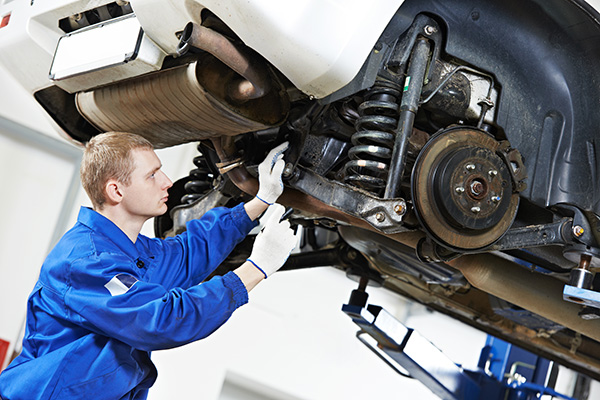
Most suspension problems don’t start with a loud bang. They usually begin as a slow change you feel over time. The car starts sounding a little bit rougher, the steering feels less settled on the highway, or you notice a clunk when you pull into a driveway or go over a bump. It’s easy to chalk it up to bad roads but it could be your suspension and suspension wear has a way of snowballing. Once the vehicle stops staying planted the way it used to, comfort is only part of the story. What The Suspension Is Really Doing While You Drive Your suspension has a few jobs that happen all at once. The suspension is not only there for comfort. It's main job is to keep the tires pressed to the road. The suspension controls body movement, articulates with uneven ground, and absorbs bumps so the tires roll over the ground with consistent pressure, rather than bouncing across it. Springs hold the vehicle up, ball joints allow multi-angle ar ... read more
Posted on 12/8/2025
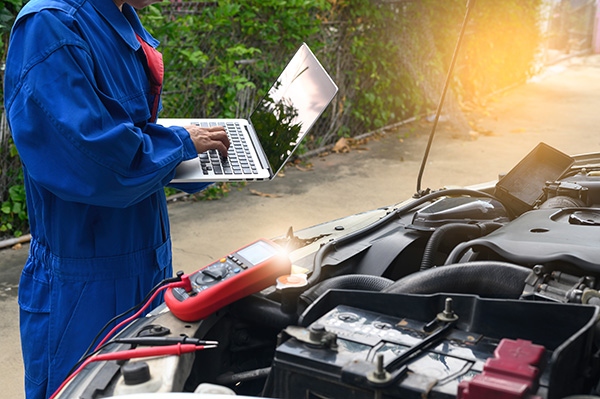
When an engine starts to shake, you feel it in the seat, steering wheel, or even through the floor. Sometimes it shows up only at stoplights, other times it gets worse as you accelerate or brake. That shaky feeling is more than an annoyance; it is usually a sign that something in your vehicle needs attention. It is important to address it before it becomes a bigger repair. 1. Worn or Broken Engine or Transmission Mounts The engine and transmission are mounted to the vehicle using rubber insulators molded into metal brackets. There is actually no metal to metal connection between the engine, transmission and differential and the frame of the vehicle. The part of the mount that is attached to the engine is completely suspended in rubber within the engine mount. The metal provides the structure while the rubber between absorbs vibrations and shocks from putting the car in gear, hitting bumps, and hard acceleration or braking. The engine mou ... read more
Posted on 10/15/2025

If your Hyundai feels slow to respond when you press the gas pedal, the issue may lie within the engine or fuel system. Hesitation during acceleration can point to clogged fuel injectors, dirty air filters, or failing ignition coils. On newer models, this symptom could also be caused by faulty sensors sending the wrong data to the engine control unit, resulting in an improper fuel-air mixture. Drivers often notice this issue during highway merging or uphill driving, when the engine is expected to deliver more power. If it feels like your vehicle is holding back, it may be time to have the engine checked. Smoke or Unusual Smells Blue smoke often indicates that the engine is burning oil, while white smoke could point to coolant entering the combustion chamber. Both are signs of internal leaks that need immediate attention. Smoke coming from under the hood is never a good sign. Burning smells may also come from oil leaking onto hot engine components. These ... read more
Posted on 9/15/2025

The Dodge and Ram ProMaster is a versatile work van built for hauling cargo, making deliveries, and transporting equipment. Whether you use it for contracting, logistics, or other commercial work, your ProMaster faces heavier demands than a typical passenger vehicle. Its engine and transmission works harder, runs longer, and handles heavier payloads, which makes proper maintenance and quality repairs more important than ever. Unlike smaller vehicles, commercial vans like the ProMaster are designed to withstand high mileage and demanding workloads. However, these capabilities don’t make the engine invincible. Learn how to get the most out of your ProMaster investment here. Prioritize Oil Changes for Long-Term Engine Health The ProMaster’s engine is under constant stress from frequent starts and stops, long idling times, and heavy towing or hauling. Because of this, its oil works harder than in most vehicles. Over time, heat, friction, and contaminan ... read more
Posted on 8/11/2025
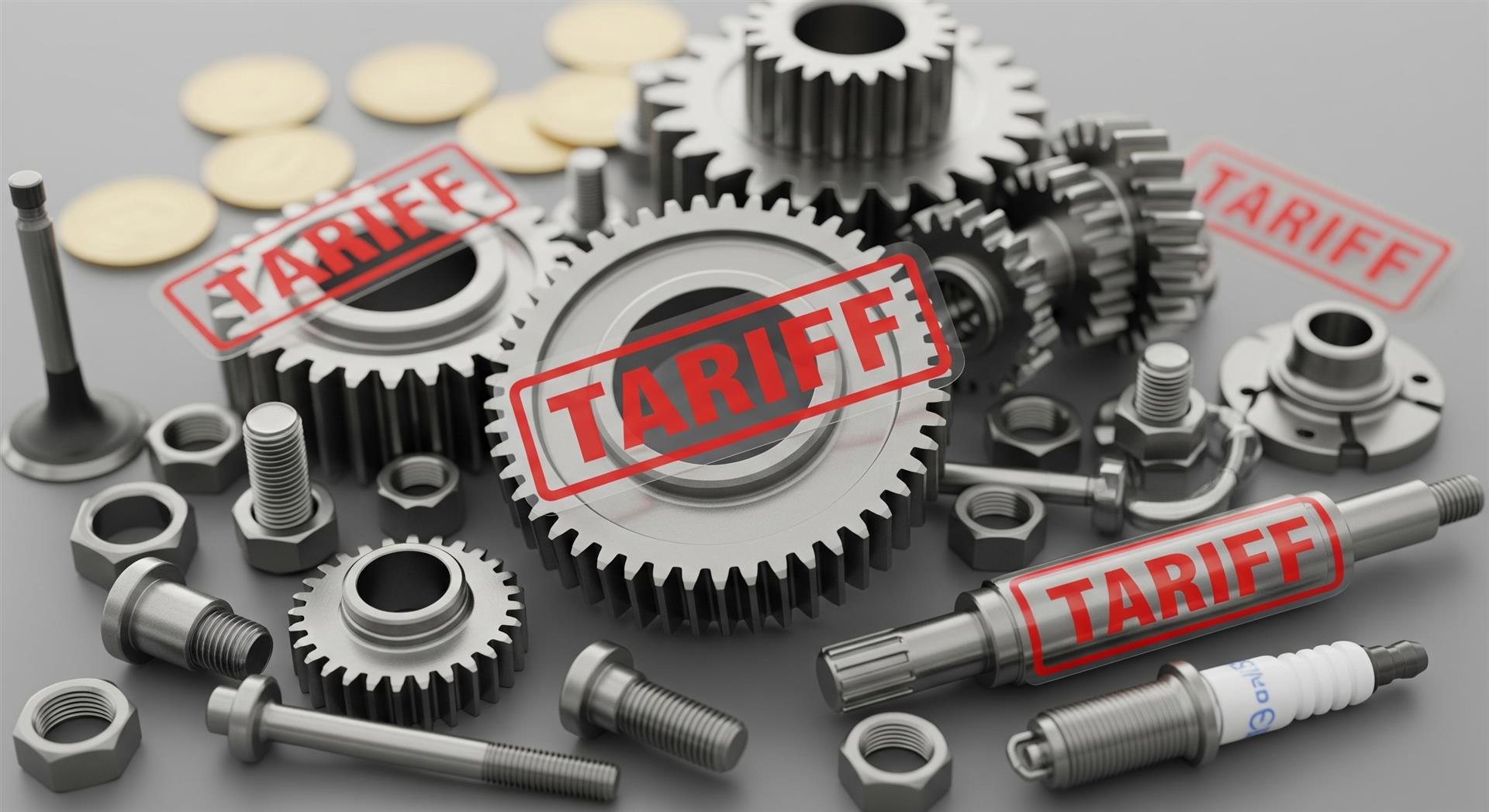
European cars are known for their performance, engineering, and precision. But when it comes to repairs, many drivers are noticing a new challenge: higher prices and longer wait times for parts. Recent tariff changes have put added pressure on both repair shops and customers who rely on brands like BMW, Audi, Volkswagen, Mercedes-Benz, Volvo, and MINI. If you own a European vehicle, understanding how these tariffs affect your maintenance and repair costs is more important than ever. Let’s break down what’s happening and how it might impact your next visit to the shop. From 30% Threat to a 15% Deal Talk of tariffs on imported European car parts began months ago as part of broader trade negotiations. Initially, the United States proposed a 30% import tax on certain components, citing concerns about market fairness and domestic manufacturing. That announcement sparked immediate concern across the automotive industry. After months of discussions, a compromi ... read more
Posted on 7/22/2025

Land Rover and Range Rover vehicles are known for their luxury, off-road capabilities, and powerful performance. However, they can be expensive to repair. By understanding some of the most common engine issues and taking preventive steps, you can enjoy a smoother, more reliable experience and save some money in the process. 1. Timing Chain Problems Many Land Rover and Range Rover models use timing chains instead of timing belts. While timing chains are designed to last longer, they slide against oil coated guides which can wear out and cause a loss of tension, especially if oil changes are delayed. A failing timing chain can cause rattling noises, poor engine performance, or even complete engine failure if it jumps on the sprockets or breaks. Regular oil changes and inspections help keep the chain properly lubricated and catch early signs of wear before they turn into major repairs. 2. Coolant Leaks Coolant leaks are a common issue in these vehicle ... read more
Posted on 6/15/2025
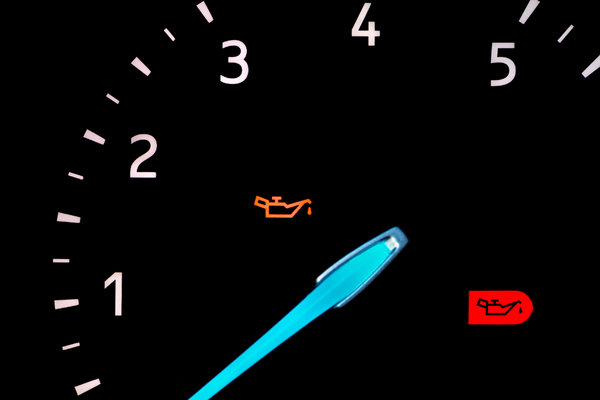
When an oil light appears on your dashboard, it’s never something to ignore. That small icon, shaped like an old-fashioned oil can, can represent several different issues, each with varying levels of urgency. Understanding what these warnings mean helps you respond appropriately and avoid serious damage to your engine. Here we will address: What is the difference between a red and yellow oil light?What does it mean if my oil light is flashing?When is it just low or just maintenance and when is it critical?Can I drive when my oil light is on? Will I blow my engine? Even if your vehicle seems to be running fine, a glowing or flashing oil light should always be treated seriously. It’s often one of the first indicators that your engine is at risk. Yellow Oil Light A yellow oil light typically indicates low oil level. Many modern cars are now equipped with electronic oil level sen ... read more
Posted on 5/13/2025

If you've ever found yourself stuck in the infamous traffic jams on Highway 270, you know how quickly your patience can be tested. Endless lines of cars, honking horns, and the frustration of slow-moving traffic can turn even the calmest driver into a ball of stress. But don't worry! With a few strategies, you can keep your cool and make your commute a little more bearable. The Causes of Highway 270 Traffic The highway's layout, numerous exits, and frequent roadworks contribute significantly to congestion. Heavy traffic is a daily occurrence on the highway, which is a major route for commuters in the Washington, D.C., metropolitan area. Recognizing these factors can help you set realistic expectations and plan accordingly. Prepare Yourself Before You Hit the RoadPlan Your Route One of the best ways to avoid stress in traffic is to plan your route ahead of time. Use navigation apps to check for the latest traffic condit ... read more
Posted on 4/10/2025
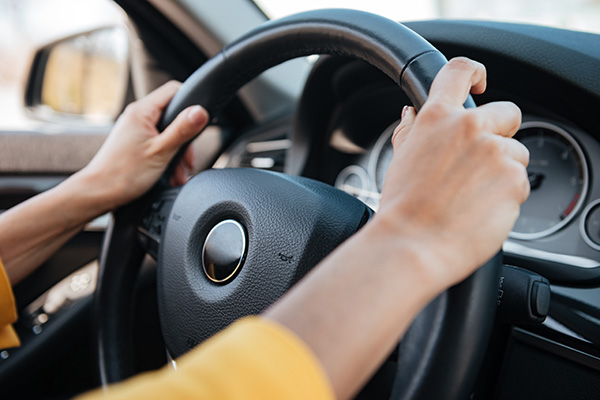
If your steering wheel suddenly starts to feel off—maybe it shakes, pulls to one side, or just feels looser or stiffer than usual—it’s worth taking seriously. These changes don’t happen for no reason. In many cases, it’s a sign that something isn’t quite right with your alignment, suspension, tires, or power steering system. Steering isn’t just about comfort—it’s about control. And when that feeling changes, it’s your vehicle’s way of signaling a problem you shouldn’t ignore. So, what could be behind the difference you’re noticing? Vibrations at Certain Speeds If your steering wheel starts to shake or vibrate when you hit a certain speed—typically around 50 to 70 mph—it’s often a sign of wheel balance issues or uneven tire wear. When the wheels aren’t properly balanc ... read more
Posted on 3/21/2025

Written by Kukui, an Automotive Industry Leader When it comes to finding a trustworthy auto repair shop, reviews and ratings matter. You want a place that delivers excellent service, treats customers right, and consistently performs high-quality repairs. That’s exactly what the CARFAX Top-Rated Service Center designation represents. But what does it really mean for you as a vehicle owner? How Does a Shop Earn CARFAX Top-Rated Status Not every auto repair shop makes the cut. CARFAX, known for its vehicle history reports, also tracks service quality through verified customer feedback. Each year, they recognize repair shops that maintain outstanding ratings from real customers. To be named a CARFAX Top-Rated Service Center, a shop must consistently receive high marks for quality work, honesty, and customer service. For drivers, this means you don’t have to take a gamble on where to bring your car. A CARFAX Top-Rated shop has already been vetted by other ca ... read more